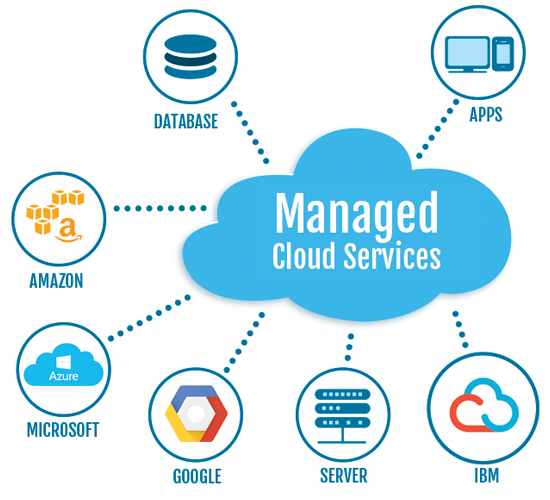LinkDaddy Cloud Services - Advanced Innovation for Your Organization Success
LinkDaddy Cloud Services - Advanced Innovation for Your Organization Success
Blog Article
Make The Most Of ROI With Strategic Cloud Solutions
In the fast-evolving landscape of company technology, the tactical utilization of cloud solutions has actually ended up being a vital factor to consider for companies aiming to boost their return on investment. By straightening cloud services with particular service purposes and employing a thorough approach to source monitoring, firms can unlock a wide variety of benefits that extend beyond plain expense savings. The complex interaction in between expense optimization, scalability services, and rigorous safety actions in the realm of cloud computer holds the vital to not simply growing yet enduring in today's open market.
Benefits of Cloud Providers for ROI
Leveraging cloud solutions can dramatically enhance return on financial investment by streamlining operational performance and minimizing facilities expenses. One essential benefit of cloud services is the scalability they use.
Additionally, cloud solutions provide boosted flexibility and agility. With the ability to gain access to data and applications from anywhere with an internet connection, employees can function a lot more efficiently and collaborate flawlessly. This adaptability likewise makes it possible for companies to swiftly adjust to altering market conditions, providing them an one-upmanship.
In addition, cloud solutions improve safety procedures, aiding to secure sensitive information and minimize dangers. Cloud carriers typically have robust safety and security procedures and on a regular basis update their systems to protect versus cyber hazards. By leveraging these solutions, companies can decrease the probability of expensive data violations and downtime, ultimately causing a higher return on financial investment.
Cost Optimization Methods
Exactly how can services properly lower expenses while making the most of the benefits of cloud services? Expense optimization methods play a crucial duty in accomplishing this equilibrium. One efficient method is to continually adjust and monitor cloud source appropriation based upon actual use. By rightsizing services to match needs, companies can stay clear of overprovisioning and unnecessary prices. Additionally, leveraging place instances or booked capability can bring about substantial cost savings, particularly for workloads with predictable use patterns.
One more cost optimization strategy involves optimizing data storage by archiving or removing repetitive info. Implementing information lifecycle monitoring plans aids in handling data efficiently, lowering storage costs, and enhancing general system performance. Furthermore, making use of serverless innovations can assist in additional cost reduction by billing just for real usage as opposed to provisioning and maintaining specialized servers.

Scalability and Flexibility Solutions
For businesses seeking to enhance their operational effectiveness and responsiveness to changing needs, applying scalable and adaptable cloud remedies is paramount. Scalability and flexibility in cloud solutions allow companies to readjust their resources according to fluctuating workloads, ensuring ideal performance without unneeded costs. By leveraging cloud scalability, organizations can flawlessly increase or reduce their computing power, storage space, and bandwidth as required, enabling them to satisfy peak needs without overprovisioning resources during slower periods.
Furthermore, adaptability in cloud solutions allows business to adapt rapidly to market adjustments and technological developments. With the ability to quickly integrate new tools and services right into their existing cloud framework, organizations can stay active and competitive in today's fast-paced service atmosphere. Whether it's deploying new applications, expanding into brand-new markets, or fitting remote workforces, flexible cloud options supply the agility and adaptability needed for continual growth and success.

Protection Procedures for Information Defense
Implementing robust security measures is necessary for guarding sensitive data and guaranteeing information protection in cloud atmospheres. When utilizing cloud solutions, companies must prioritize safety and security to reduce dangers related to data breaches and unauthorized access. File encryption plays a crucial role in shielding information both en route and at remainder. By securing data, services can make certain that even if information is obstructed, it continues to be unreadable without the appropriate decryption key.
Multi-factor verification (MFA) is Continue one more critical safety procedure that includes an extra layer of security by requiring users to provide multiple types of verification before accessing sensitive info. This aids prevent unapproved access, also if login credentials are compromised.
Regular protection audits and monitoring are important parts of preserving data safety and security in the cloud. By checking and conducting regular analyses for any suspicious tasks, organizations can without delay identify and deal with potential safety and security hazards prior to they intensify.
Moreover, applying role-based access control (RBAC) ensures that just authorized workers can access certain data collections, reducing the risk of data leakages or unauthorized alterations (cloud services press release). By integrating these security determines right into their cloud method, companies can enhance information defense and decrease protection vulnerabilities
Making Best Use Of Functional Efficiency
To maximize operational efficiency in cloud atmospheres, critical source allowance is paramount for improving processes and improving total efficiency. By leveraging cloud solutions properly, companies can scale sources up or down based on demand, making best use of and minimizing functional prices efficiency. Automating routine tasks, such as software application updates or information backups, with cloud administration tools can release up IT teams to concentrate on even more critical efforts. Implementing tracking and analytics tools within the cloud facilities enables real-time exposure into efficiency metrics, making it possible for positive recognition and resolution of prospective concerns before they affect operations. Additionally, embracing a cloud-native technique to application development and deployment can better optimize operational performance by increasing agility and decreasing time to market for new solutions. Collaborating very closely with cloud provider to straighten sources with service objectives and frequently assessing and optimizing cloud usage can make certain that operational efficiency continues to be a top concern for continual success in the cloud environment.
Conclusion
Finally, leveraging strategic cloud solutions can substantially improve functional effectiveness and reduce infrastructure expenses, inevitably making the most of roi for organizations. By executing cost-saving strategies, enhancing information storage, and guaranteeing information security with protection procedures, services can accomplish scalability, versatility, and enhanced efficiency in the cloud important source atmosphere. Taking full advantage of ROI with cloud solutions calls for continuous surveillance, optimization, and automation look at more info to adapt to changing workloads and make sure sustained development and success.
In addition, cloud solutions improve security measures, assisting to secure sensitive information and mitigate risks (cloud services press release).Applying durable security procedures is important for protecting delicate information and guaranteeing data protection in cloud atmospheres. When using cloud solutions, organizations must focus on safety to reduce risks associated with data breaches and unapproved access. Working together closely with cloud solution suppliers to line up resources with service purposes and on a regular basis maximizing and assessing cloud usage can guarantee that operational effectiveness stays a top concern for sustained success in the cloud setting
By carrying out cost-saving approaches, optimizing information storage, and making sure information protection with security procedures, organizations can attain scalability, versatility, and improved performance in the cloud atmosphere.
Report this page